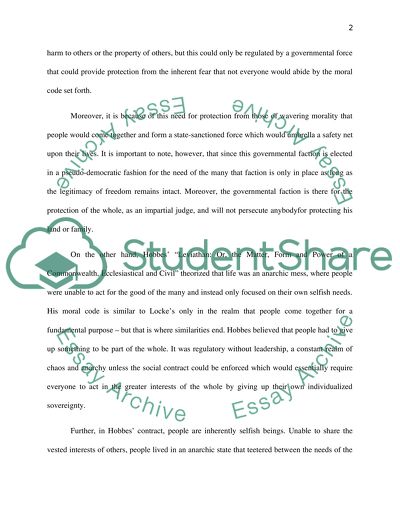Cite this document
(“Contrasting the Hobbesian and Lockeian Social Contracts Essay”, n.d.)
Contrasting the Hobbesian and Lockeian Social Contracts Essay. Retrieved from https://studentshare.org/philosophy/1446788-hobbes-and-locke
Contrasting the Hobbesian and Lockeian Social Contracts Essay. Retrieved from https://studentshare.org/philosophy/1446788-hobbes-and-locke
(Contrasting the Hobbesian and Lockeian Social Contracts Essay)
Contrasting the Hobbesian and Lockeian Social Contracts Essay. https://studentshare.org/philosophy/1446788-hobbes-and-locke.
Contrasting the Hobbesian and Lockeian Social Contracts Essay. https://studentshare.org/philosophy/1446788-hobbes-and-locke.
“Contrasting the Hobbesian and Lockeian Social Contracts Essay”, n.d. https://studentshare.org/philosophy/1446788-hobbes-and-locke.


